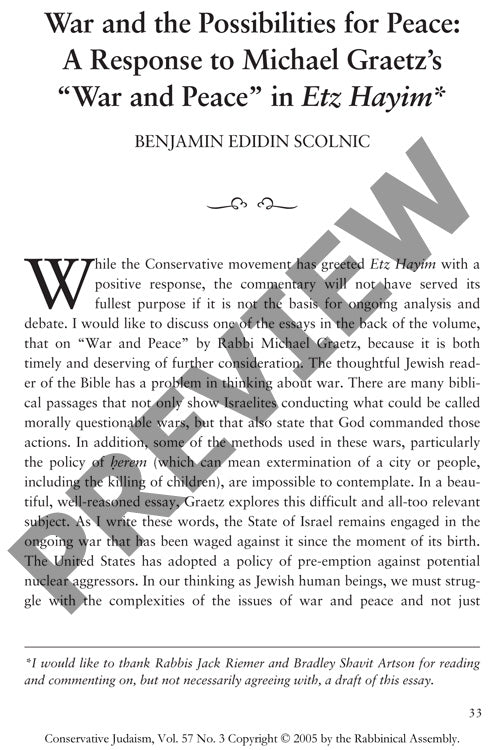War and the Possibilities of Peace a Res
Couldn't load pickup availability
How did ancient Jewish texts truly view the relationship between divine command and human agency in warfare? Rabbi Michael Graetz's interpretation in Etz Hayim suggests the Bible shows an evolution from absolute divine war mandates toward peace-oriented solutions, with humans increasingly partnering with God to question military actions. Yet close analysis of biblical passages concerning herem (total war), divine conflicts, and rabbinic categories of warfare reveals significant challenges to this reading. Through systematic examination of key texts, this analysis demonstrates that the Bible consistently emphasizes God's absolute commands rather than flexible divine-human partnerships. Cases like Saul's punishment for modifying God's command against Amalek, and David's disqualification from Temple-building, contradict Graetz's evolutionary model. While Graetz's peace-oriented interpretation reflects admirable Conservative Jewish hermeneutics, it inadequately addresses the biblical concept of chosen people requiring a chosen land, and fails to account for contemporary applications of obligatory war, particularly regarding Jewish settlement in Israel. The findings illuminate ongoing tensions between pacifist biblical interpretations and practical security concerns, demonstrating the continued relevance of ancient war ethics for modern Jewish thought.

More Information
-
Physical Description
-
Publication Information
Published 2005
ISBN
-
Publication Credits
Benjamin Scolnic

